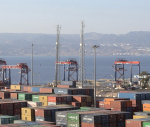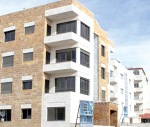You are here
Recovery policies
Mar 03,2014 - Last updated at Mar 03,2014
Enhancing economic competitiveness is the best and safest politically, and the only way to do all the following simultaneously: reduce the budget deficit and national debt, grow the economy, increase average wages, and reduce unemployment and poverty rates.
Doing it is simple and the means are available.
And if the word competitiveness is too heavy, let’s start with an even more basic premise: start to motivate the economy to grow steadily this year and the next, and the one thereafter.
In other words, increase economic growth from the less than 3 per cent (in real terms, i.e., after inflation) of last year to 6 per cent in real terms this year, and then to 8 per cent and even 10 per cent the year after.
How?
By providing seed funding for large projects that use up the GCC funds that were given to Jordan for the purpose of uplifting the per capita income.
No need for extra borrowing; the $5 billion can be used as leverage to attract over $25 billion in domestic and foreign investment.
Projects can span the Kingdom from the very north to the deepest south, in Aqaba and Maan, and every governorate should benefit immediately from such investment.
Whether it is railway, energy, renewable energy or water-related projects, all are important and needed.
The scenario starts like this: the projects are announced, bidding starts, optimism spreads within and outside the Kingdom, people go back to spending and investing again, and by the time the government starts allocating funds, a virtuous cycle will have started.
The cycle could create growth rates that will surpass the over 7 per cent average of the period 2004-2008. In fact, this period could usher a golden age that the economy never witnessed.
And the scenario is not finished with euphoria and increased spending.
Several support industries and services will grow around these investments, creating a ripple effect.
The growth in investment will make the Jordanian labour more valuable relative to capital. Employers will demand highly skilled workers and will pay more.
Jordan will be able to attract back some of its workers from the Gulf countries.
The scenario will also enable the government to reduce its size in terms of people and budget.
As the economy grows, and with it salaries in the private sector to levels that surpass those of the public sector (the average salary in the public sector at JD461 per month is higher than in the private sector, which is JD390), the private sector will become more attractive to employees and a substitution effect will take place.
People will shift from the public to the private sector and within five years, the government size will begin to shrink without having to lay off one individual.
Consequently, the salary and pension allocations within the budget will also decrease.
With the increased economic activity, the government revenues will increase without having to raise any fees or taxes.
With more revenues and less operational expenditures, the budget deficit will decrease and so will the need to borrow; in fact, the government could start repaying its debt.
This is all simple, easy to follow and implement, provided the political will to do it exists.













